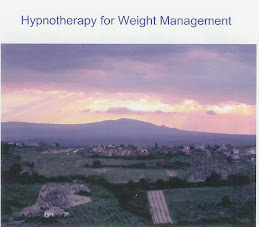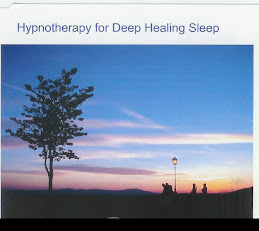Anxiety is a physiological reaction to not enough oxygen in your system.
It’s as simple as that.
Anxiety is a “flight or fight response”. Sometimes this response is left over from some past experience, and it has then generalized this experience to other things. Things technically not related to that fearful experience, but that may have been present in the environment when that fearful event took place.
When we are stressed and anxious, we feel our heart race, breathing is high in the upper chest and shallow, we get upset stomachs or “butterflies”, hands, fingers and feet become numb and tingly, we sweat, our neck and face become red, we can’t think, concentrate or focus, access to memory is limited.
ALL of these symptoms are simply a result of not enough oxygen in our system.
The key to lowering stress and getting rid of anxiety reactions is simply getting more oxygen in the body.
The simple fact is: You cannot be excited, anxious and fearful, and at the same time that you are relaxed, calm and peaceful. (Try it. Try to feel those two groups of emotions at the same time. It simply is impossible. The body cannot do this.)
How do we get more oxygen in the body when we need to, or choose to be, more calm and relaxed?
The following Relaxation Breathing exercise is the answer. You can choose to be as calm and relaxed as you wish, when you wish, anytime, anyplace. You can be in control of your level of relaxation.
You have a muscle that crosses your body, beneath your lungs, called the diaphragm. When you breathe in this muscle pulls down, drawing air into the lungs like a bellows or a plunger. This muscle helps you take air into your lungs. When you walk fast, or run, or do physical work, you can feel this muscle automatically kick in, and you feel your belly expanding so you can inhale more air. This happens normally and naturally. This is the natural breath you were born with.
Learning to use this muscle with each deep breath is the key to your relaxation.
Follow the exercise on the next page and learn how to be a more relaxed and calm
person, as relaxed and calm as YOU choose to be.
Relaxation Breathing / Diaphragmatic Breathing / Belly Breathing
Once you know how, this Relaxation Breathing exercise should be practiced 6-8 times per day, until it once again becomes automatic, natural, the breath you are born with. Practice at bedtime to use it to fall easily asleep. Use anytime, anywhere, whenever you feel the slightest feeling of stress. Good times to practice: standing in line at the store, at a stop light in your car, in the waiting room of an office, on commercial breaks while watching a movie.
Sit or lye down, make yourself comfortable. Place one or both hands on your belly, just above your naval, and below your rib cage, start your breath here. Take a Deep breath, allow your belly to initiate or start the breath. Allow your belly to fully expand with your intake of breath. You may notice your lower back arching slightly as you inhale.
Then on the exhale allow your belly to push the air out of your lungs. Allowing the belly to start and gently force the air back out of your lungs.
Notice that with your hands on your belly you can feel your belly expand on the inhale and contract on the exhale. As you breathe deeply and slowly, simply observe and feel your belly gently move in and out.
Repeat this exercise for 10 Breaths. Practice for 10 breaths every night at bedtime.
This will help you fall asleep. Also use daily many times a day.
You can use this breathing technique to reduce stress and anxiety wherever you are, whatever you are doing. Use it sitting, standing, walking, driving, sitting at a stop light, waiting in line…
The more you use it, the better it works. The more you use it the faster it works.
The more you use it, the less likely you are to have an episode of anxiety, panic or stress.
The more you use it, the body and mind learns to quickly and immediately go into relaxation.
Remember: the body cannot be excited, anxious and fearful, at the same time it is relaxed, calm and peaceful.
Research recently supports Diaphragmatic Breathing as neuromuscularly connected to the basal area of the brain. The same area where our Flight, Flight or Freeze response originates.
Our Flight, Flight or Freeze response, is a normal and natural response that occurs to protect us from possibly dangerous situations. It only becomes a problem when it is overreacting. When we have too much trauma, drama, or stress in our lives, or it goes on for too long, then we begin to breath in a Flight, Flight or Freeze response breath, which is shallow and high in the chest. This causes a deficiency in oxygen and a feeling of anxiety. This type of breath can become a habit.
When there is not enough oxygen in our blood, our heart rate has to speed up to get more blood to our organs, because there is less oxygen in the blood; thus a racing heart rate. We get sweaty and tingly hands and feet because our body withdraws blood from extremities to feed the major organs better. We can’t focus or concentrate because we aren’t getting enough oxygen to the brain. In extreme cases one could pass out.
Flight, Flight or Freeze Breathing, shallow breathing, causes all the symptoms associated with anxiety, anxiety attacks and panic attacks. It causes a release of the stress hormone cortisol.
Cortisol is said to damage organs and cause aging to the body.
Diaphragmatic Breathing, the use of the Diaphragm muscle sends a message to the basal area of the brain to relax the body, relax the mind, and to lower the release of the stress hormone Cortisol in our system.
Diaphragmatic Breathing, Relaxation Breathing is a way for us to take back control of our level of relaxation, naturally.
Labels: Cortisol hormone, anxiety, anxiety attack, panic attack, belly breathing, diaphragmatic breathing, relaxation breathing, Social Anxiety





















